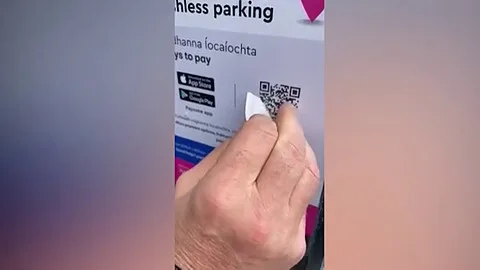In a concerning development, motorists in Dublin are being alerted to a new scam involving parking meters across the city. Fraudsters are reportedly placing fake QR code stickers on parking meters, which lead unsuspecting drivers to counterfeit websites designed to steal personal and financial information.
The scam operates by exploiting the convenience of QR codes, which are commonly used by drivers to pay for parking through their mobile devices. Unbeknownst to many, these seemingly harmless stickers redirect to a malicious website once scanned. Here, victims are prompted to enter sensitive details, including credit card numbers and personal data, under the guise of paying for parking.
Dublin City Council has officially recognized the issue after multiple reports surfaced online. These reports include videos and personal accounts from drivers who encountered these deceptive QR codes. In response, the council has issued a public warning advising motorists to avoid scanning QR codes found on parking meters. Instead, they recommend using the official Payzone app, a secure and reliable method for mobile parking payments.
The severity of the scam was highlighted by the case of a woman who lost €1,000 after scanning one of these fraudulent QR codes. This incident has prompted local authorities to investigate further, with Gardaí actively making enquiries into the matter.
To combat this scam, Dublin City Council is taking several measures:
- Increased Surveillance: Surveillance around parking meters will be heightened to catch perpetrators in the act.
- Public Awareness Campaigns: Informational campaigns are being launched to educate the public about the scam and the importance of using official payment methods.
- Regular Inspections: Parking meters across Dublin will be regularly inspected to ensure no unauthorized QR codes are present.
Motorists are urged to remain vigilant and report any suspicious QR codes on parking meters to the authorities. By staying informed and cautious, Dublin residents can protect themselves from this and similar scams targeting public payment systems.
The emergence of this QR code scam is a stark reminder of the ongoing battle against fraud in our digital world. As technology evolves, so too do the tactics employed by criminals to exploit everyday activities for malicious purposes. It is crucial for the public to stay alert and for authorities to maintain strict safeguards to protect citizens’ security in urban environments.
